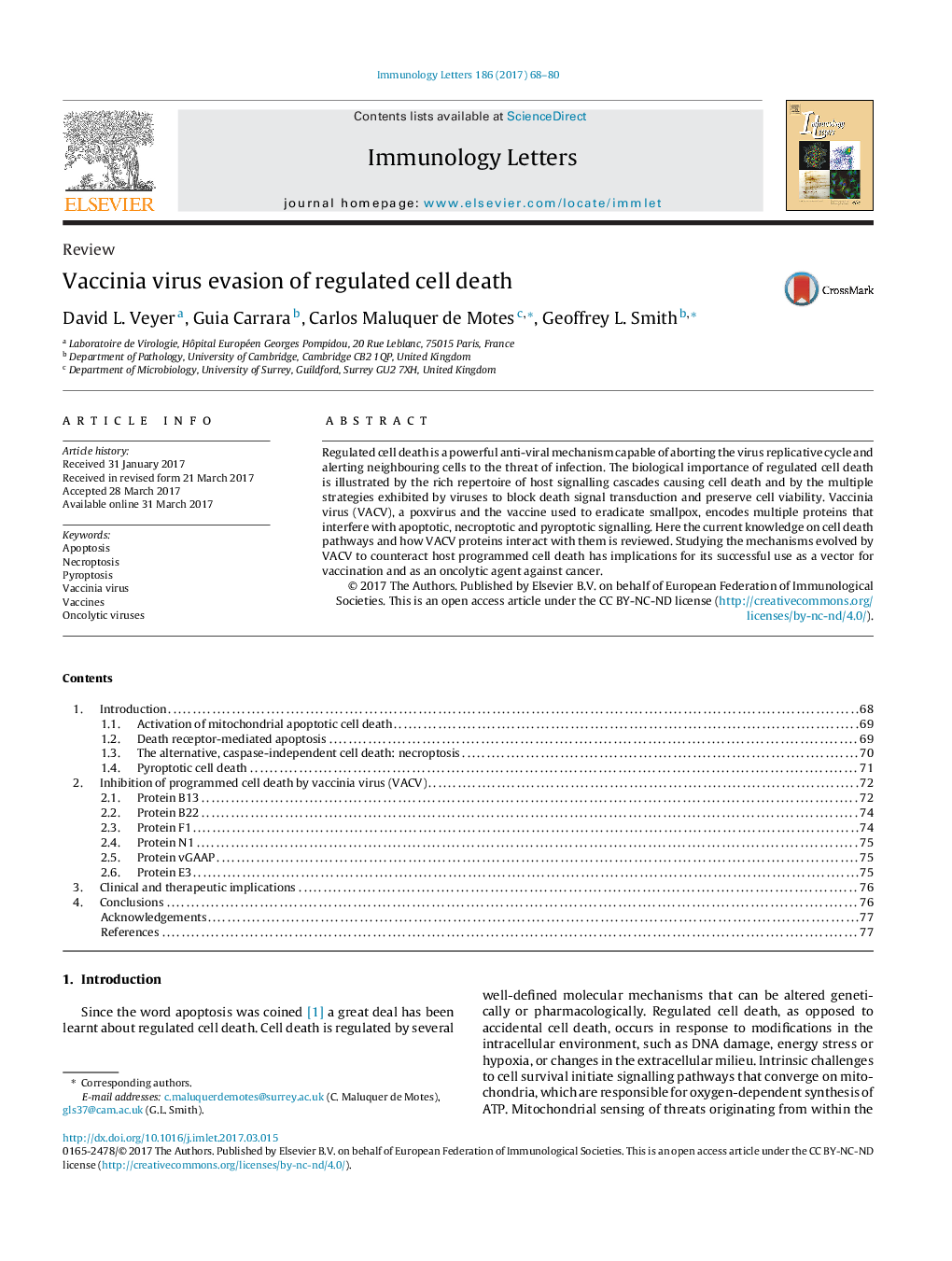| Article ID | Journal | Published Year | Pages | File Type |
|---|---|---|---|---|
| 5666712 | Immunology Letters | 2017 | 13 Pages |
â¢Vaccinia virus encodes several proteins that inhibit programmed cell death.â¢These are related to cellular proteins from which they may have evolved.â¢Each is made early during infection and has a different mechanism of action.â¢These proteins affects virus virulence and the host response to infection.â¢Their deletion may enhance vaccinia potency as a vaccine or oncolytic agent.
Regulated cell death is a powerful anti-viral mechanism capable of aborting the virus replicative cycle and alerting neighbouring cells to the threat of infection. The biological importance of regulated cell death is illustrated by the rich repertoire of host signalling cascades causing cell death and by the multiple strategies exhibited by viruses to block death signal transduction and preserve cell viability. Vaccinia virus (VACV), a poxvirus and the vaccine used to eradicate smallpox, encodes multiple proteins that interfere with apoptotic, necroptotic and pyroptotic signalling. Here the current knowledge on cell death pathways and how VACV proteins interact with them is reviewed. Studying the mechanisms evolved by VACV to counteract host programmed cell death has implications for its successful use as a vector for vaccination and as an oncolytic agent against cancer.
